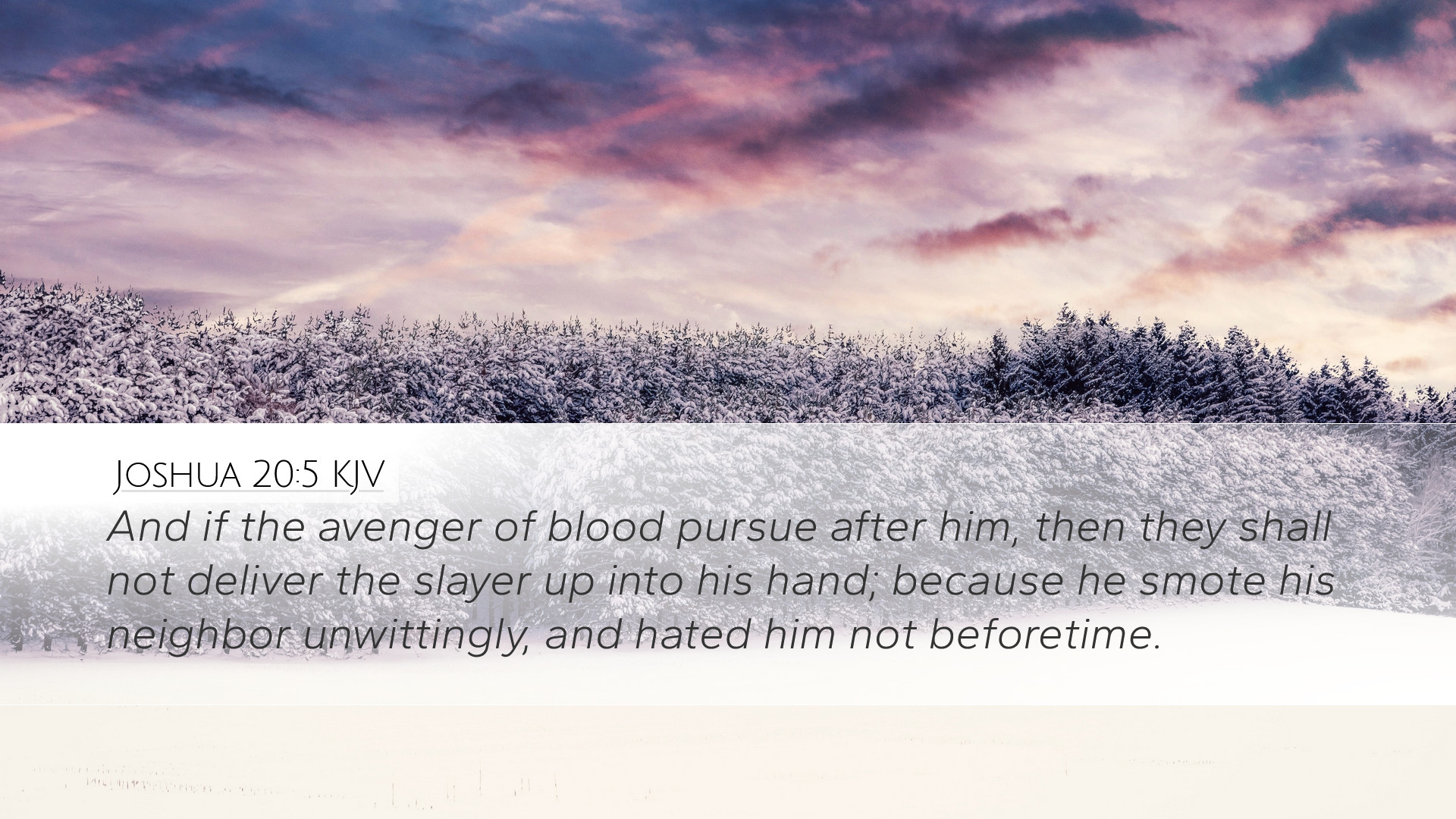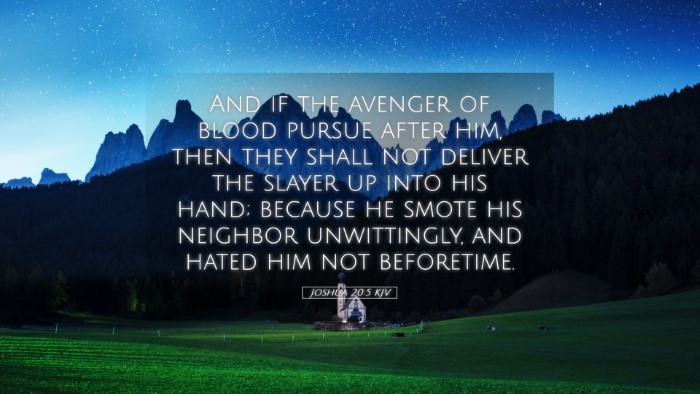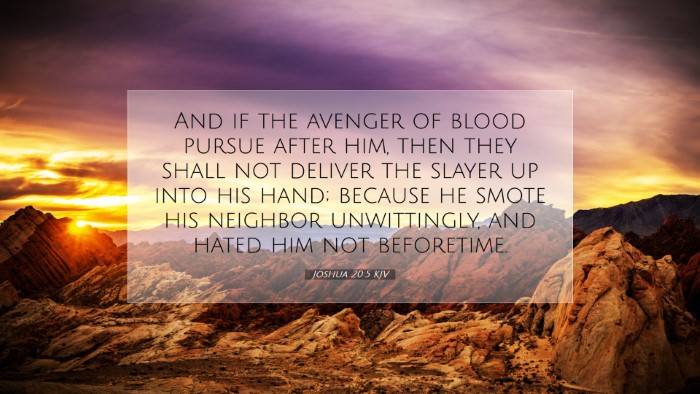Old Testament
Genesis Exodus Leviticus Numbers Deuteronomy Joshua Judges Ruth 1 Samuel 2 Samuel 1 Kings 2 Kings 1 Chronicles 2 Chronicles Ezra Nehemiah Esther Job Psalms Proverbs Ecclesiastes Song of Solomon Isaiah Jeremiah Lamentations Ezekiel Daniel Hosea Joel Amos Obadiah Jonah Micah Nahum Habakkuk Zephaniah Haggai Zechariah MalachiJoshua 20:5
Joshua 20:5 KJV
And if the avenger of blood pursue after him, then they shall not deliver the slayer up into his hand; because he smote his neighbor unwittingly, and hated him not beforetime.
Joshua 20:5 Bible Commentary
Commentary on Joshua 20:5
Verse: Joshua 20:5 - "And if the avenger of blood pursue after him, then they shall not deliver the slayer up into his hand; because he smote his neighbour unwittingly, and hated him not beforetime."
Introduction
This verse is part of the broader context concerning the cities of refuge, established as a provision for those who accidentally commit manslaughter. The understanding of 'unwittingly' plays a crucial role in interpreting both the moral and judicial aspects of ancient Hebrew law.
Historical Context
The cities of refuge were significant in Israelite society, providing an asylum for those who had unintentionally killed another person. The law reflects God's justice and mercy, highlighting a thematic juxtaposition that runs throughout scripture—divine justice tempered with compassion.
Commentary Insights
Several public domain commentaries contribute valuable insights into this passage:
-
Matthew Henry:
Henry observes that this law serves a dual purpose: it protects the slayer from retribution while firmly establishing the principle that justice must be tempered with an understanding of intent. He emphasizes the mercy of God in allowing a place for the unintentional sinner to find refuge.
-
Albert Barnes:
Barnes notes that the phrase "if the avenger of blood pursue after him" indicates the seriousness of blood vengeance in ancient societies. The avenger, typically a family member, was duty-bound to restore honor and address the wrong done. Barnes highlights the idea that there was a crucial difference between accidental and deliberate harm, which the law seeks to clarify.
-
Adam Clarke:
Clarke underscores the condition of unwitting action. He argues that the law sets a precedent for understanding guilt and innocence in a nuanced manner. He points out that the intent of the heart was paramount in determining the slayer's fate. Clarke also discusses the broader implications of these laws for understanding human nature and the divine intention behind justice.
Theological Implications
The rich theological implications of this verse suggest that God is deeply concerned about the intentions of the human heart. The law abolishes ambiguity surrounding culpability, emphasizing that unintentional actions still carry weight but must be treated with grace. This principle translates to contemporary discussions about justice and mercy, especially in pastoral care and moral education.
Application for Pastors and Theologians
For pastors and theologians, this verse is a profound reminder that the law serves as a tutor, revealing the holiness of God and the nature of sin. It invites reflection on how communities today respond to unintentional harm and how grace is extended in the face of genuine mistakes.
- Community Restoration: How can modern communities embody this principle of refuge and restoration?
- Understanding Intent: In counseling, how can the intent behind actions be understood and communicated?
- Educational Framework: How can churches educate their congregations about the complexities of justice and mercy?
Conclusion
Joshua 20:5 serves as a vital point of reflection on justice, mercy, and the character of God. By examining historical context and various commentaries, deeper insights emerge for application in contemporary Christian living. As we navigate our relationships and communities, may we hold fast to the principles of righteousness, tempered by grace.


